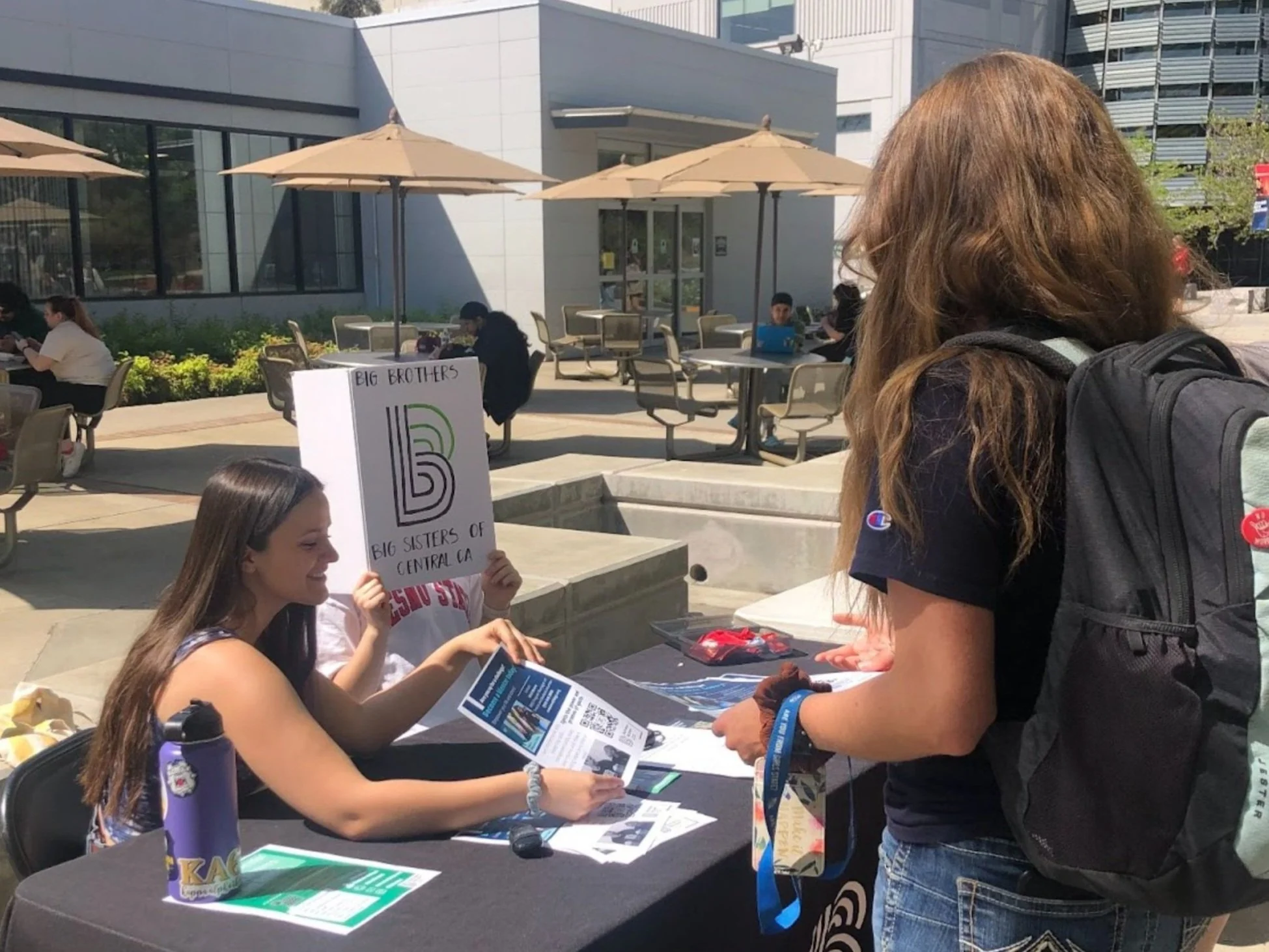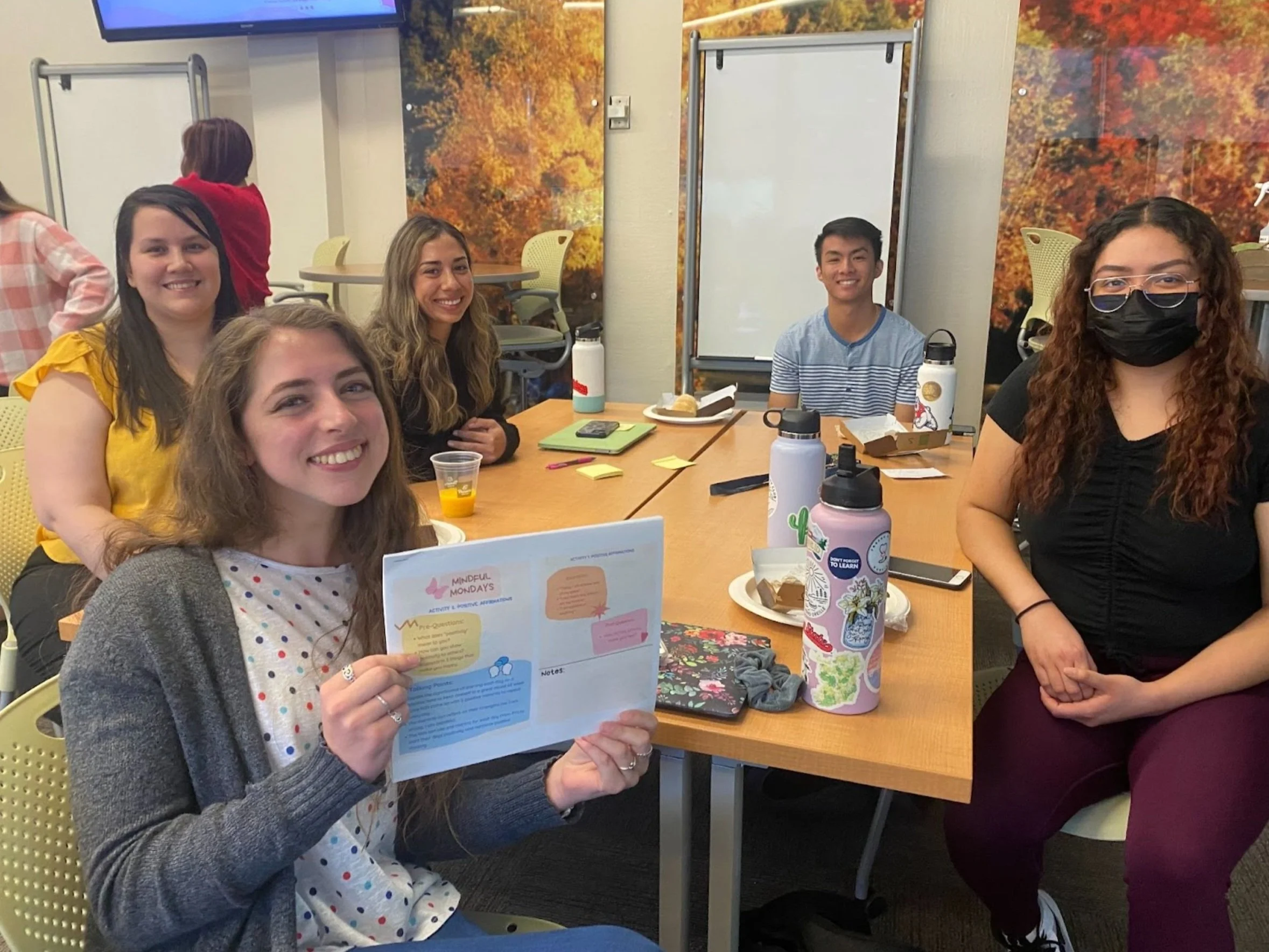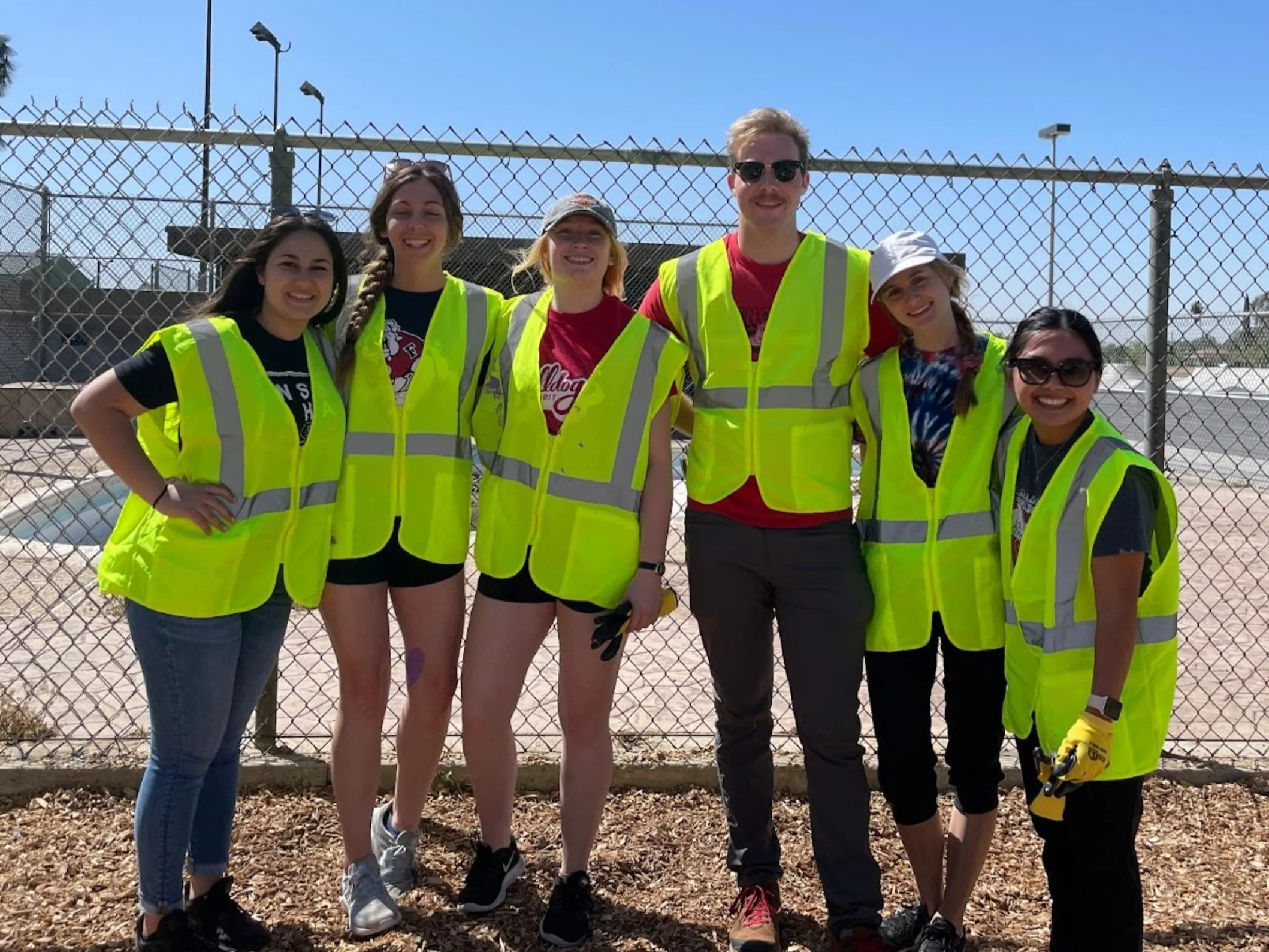Putting Plan into Practice: The CHHS Honors Program
As part of their honors curriculum, Smittcamp scholars are required to complete a scholarly activity during their time in college.
This past year, eight of our scholars participated in the College of Health and Human Services’ (CHHS) Honors Program, a two-semester program that helps motivated upper-division students develop leadership and interdisciplinary skills that can be used in future careers relating to Health and Human Services. Students are given the opportunity to apply these skills by working with a community partner to plan and develop a project or event that will address the health-related concerns of communities in the Central Valley.
This year, our scholars worked with Big Brothers Big Sisters, the California Health Collaborative, CARE Fresno, CHHS Mobile Health Unit, and Every Neighborhood Partnership.
We asked one Smitty from each group to tell us about the project and/or event they helped implement into the community.
From left to right: Lady Abangan, Nicholas Tom, Karlee Hobbs, Elise Guerra, Unknown, Megan Chinnock, Katie Maze, Elaina Meininger, Parker Fritsch.
Elaina Meininger (Big Brothers Big Sisters)
“For my project, my group and I were partnered with Big Brothers Big Sisters (BBBS) mentorship program. In the fall, we analyzed the relationship between mental health and increased waitlist time for the children interested in joining the program. We found that for many of these children, the waitlist created a sense of despair for themselves, and a feeling of “not being good enough.”
These children were faced with increased time on the waitlist not because they weren’t qualified or “good enough” to be picked, but rather due to lack of mentor availability and staffing on the BBBS end.
For these reasons, we created an intervention in the spring semester that would speed up the pairing process, provide more mentorship opportunities, and limit the time children are faced with on the waitlist. Instead of creating an intervention that was beyond our scope of practice as students, such as addressing the children's home situations and psychosocial states, we decided to create a promotional drive targeted among Fresno State students to increase awareness and excitement for the BBBS organizations.
We posted flyers around campus, hosted tabling events outside of the Bucket, and created a video with mentor testimonials that helped to show the beauty and importance of the program. At our event, many people took our flyer and said they would go on to share the information. After our 3-day event, we had a total of 14 potential volunteers sign up to become future mentors.”
Elaina Meininger hands out flyers to students on-campus.
Megan Chinnock (CARE Fresno)
“My project group and I were paired with Care Fresno, a local non-profit dedicated to asset-based community development and relationship-building in several neighborhoods throughout the Fresno area.
Our project centered on Care Fresno's after-school program, for which we created a supplemental curriculum of mental health practices. Our “Spirit Week” consists of a theme for each day of the school week: Mindful Mondays, Thoughtful Tuesdays, Work-it-Out Wednesdays, Thankful Thursdays, and Friendship Fridays.
We hope that our curriculum provides fun and easy ways to boost mental health that will impact students for a long time to come.”
Megan Chinnock (front left) and group members displaying their work.
Lady Abangan (CHHS Mobile Health Unit)
“Hello everyone! My name is Lady Abangan and I am part of the CHHS Honors Program, Mobile Health Unit Team! The mission of the Mobile Health Unit (MHU) is to bring awareness to underserved communities across Fresno County by means of bringing healthcare access and education to those who may not possess the means to find nor afford primary care.
Our project was split into two parts: one focused more on the community and the different resources available to them; the other was used to increase volunteer activity for the MHU.
We created brochures that highlighted the efforts of the Mobile Health Unit while also exhibiting the many resources found within the Central Valley. Likewise, we designed flyers and business cards for our volunteers. Our project was distributed to communal avenues such as local restaurants, the Fresno State campus and public parks.
I am truly grateful to my team and to the CHHS Honors Program for this wonderful experience! We hope to see you at the Mobile Health Unit!”
Lady Abangan (pink shirt) with the Mobile Health Unit Team.
Karlee Hobbs (Every Neighborhood Partnership)
“Our community partner was Every Neighborhood Partnership (ENP). This organization’s mission is to enrich local communities through different means, such as classes for the citizens of specific neighborhoods, after school programs, or other community enrichment activities.
While working with ENP, our group was able to assess specific communities in South Fresno and develop a project based on the health disparities the community expressed having concerns about.
With the assistance of Beautify Fresno, we decided to hold a neighborhood cleanup event at the Mary Ella Brown Community Center to help create a cleaner and safer environment where children of the community can come to play and be active.”
Karlee Hobbs (second from left) and group members wearing safety vests at their cleanup event.
Katie Maze (California Health Collaborative)
“Our community partner was the California Health Collaborative (CHC), a non-profit organization working on the development of policy restricting tobacco advertising and retail in specific areas throughout the Central Valley, in close proximity to schools primarily.
In our work with CHC, our group put together a promotional educational video explaining the importance of tobacco policy, what a tobacco retail license is, and what change it would make, as well as how people can get involved.
Through this experience, we were able to learn and witness the ways that health and policy intermix and impact one another and the ways we as young adults can make a difference.”





